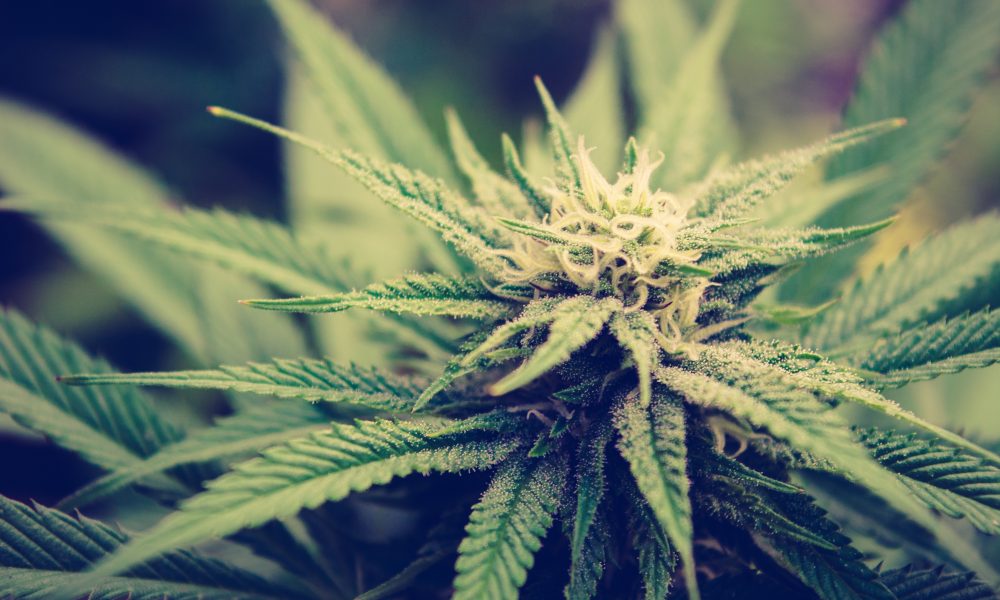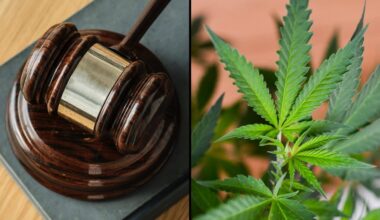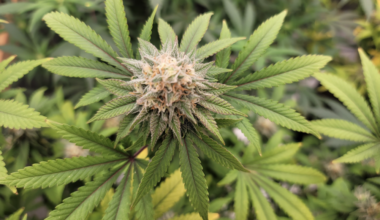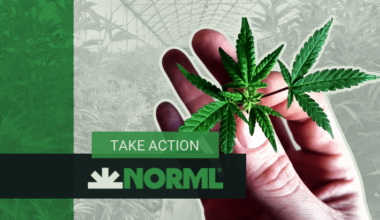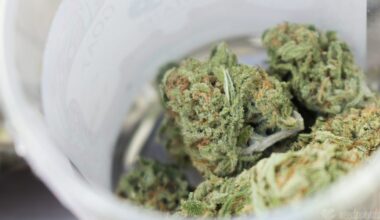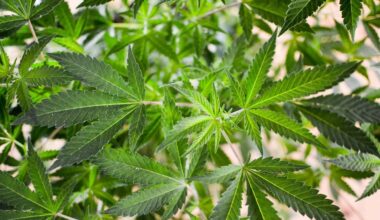Georgia lawmakers on Tuesday advanced a bipartisan resolution that calls for the formation of a House study committee to investigate the therapeutic potential of psychedelics like psilocybin and make recommendations for reforms.
The legislation, sponsored by House Appropriations Public Safety Subcommittee Chairman Bill Hitchens (R), was taken up by the House Defense And Veterans Affairs Committee and approved unanimously via a voice vote. That panel’s chair, Rep. Heath Clark (R), is a cosponsor of the measure.
Before the vote, lawmakers discussed the potential therapeutic value of psychedelics for military veterans.
“I certainly have a place in my heart for people who have post-traumatic stress syndrome and who’ve been able to overcome it through this treatment,” Hitchens, a Vietnam War veteran, told fellow lawmakers. “It’s probably a real opportunity for some people to essentially save their lives.”
Clark, the panel’s chairman, said that “everybody here would be in agreement that we are looking for opportunities to help serve veterans, and further their ability to be productive members after their service to this country.”
The resolution starts with a section that discusses the need for effective treatments for major depressive disorder and post-traumatic stress disorder for military veterans.
The Emory Healthcare Veterans Program located within the state has “experience in both veteran treatment and psychedelic treatments, and studies show substantial evidence that supports psilocybin-assisted psychotherapy for the treatment of depressive disorders,” the text of the measure states.
Rep. Josh Bonner (R), who serves as a floor leader for Gov. Brian Kemp (R), said he thinks the idea is “an admirable project.”
“Veterans that are seeking treatment…are willing to go wherever they believe there’s any possibility of success,” he said. “I would certainly be in support of hosting that kind of success here in Georgia.
—
Marijuana Moment is already tracking more than 1,000 cannabis, psychedelics and drug policy bills in state legislatures and Congress this year. Patreon supporters pledging at least $25/month get access to our interactive maps, charts and hearing calendar so they don’t miss any developments.![]()
Learn more about our marijuana bill tracker and become a supporter on Patreon to get access.
—
The resolution also notes that “current research on psilocybin trials excludes patients with a history of substance abuse, and research further indicates that psilocybin therapy can enhance sobriety-focused psychotherapy for addiction.”
There are no explicit references to any particular studies that the proposed House Study Committee on Alternative Post-Traumatic Stress Disorder Treatment Resources for Veterans would be tasked with exploring; rather, the measure says members “shall undertake a study of the conditions, needs, issues, and problems mentioned above or related thereto and recommend any action or legislation which the committee deems necessary or appropriate.”
The new committee would include the chair of the House Defense and Veterans Affairs Committee, two members appointed by the House speaker, one of which would be named chair of the study panel, and two members of the state Department of Veterans Affair.
Prior to voting to approve the legislation, the committee adopted an amendment to also add a representative of the Georgia Department of Public Health to the study committee.
“In the event the committee adopts any specific findings or recommendations that include suggestions for proposed legislation, the chairperson shall file a report of the same prior to the date of abolishment specified in this resolution,” the resolution says. “In the event the committee adopts a report that does not include suggestions for proposed legislation, the chairperson shall file the report.”
There would be a tight turnaround deadline for any reports or recommendations, with the measure calling for the dissolution of the committee on December 1, 2022.
The legislation now heads to the House Rules Committee ahead of potential floor consideration.
Activists and lawmakers across the U.S. have kicked into high gear when it comes to psychedelics policy reform this session.
For instance, the governor of Utah last week signed a bill to create a task force to study and make recommendations on the therapeutic potential of psychedelic drugs and possible regulations for their lawful use.
A Missouri House committee also held a hearing last week on a GOP-led bill to legalize a wide range of psychedelics for therapeutic use at designated care facilities while further decriminalizing low-level possession in general.
A Connecticut legislative committee approved a bill this month that would set the state up to provide certain patients with access to psychedelic-assisted treatment with substances like MDMA and psilocybin. Connecticut Gov. Ned Lamont (D) signed a separate bill last year that includes language requiring the state to carry out a study into the therapeutic potential of psilocybin mushrooms. A workgroup has since been meeting to investigate the issue.
A Maryland House of Delegates committee held a hearing this month on a bill to create a state fund that could be used to provide access to psychedelics like psilocybin, MDMA and ketamine for military veterans suffering from post-traumatic stress disorder (PTSD).
The Washington State legislature recently sent a budget bill to the governor’s desk that includes a proposal to direct $200,000 in funding to support a new workgroup to study the possibility of legalizing psilocybin services in the state, including the idea of using current marijuana regulatory systems to track psychedelic mushrooms.
This month, the Hawaii Senate approved a bill to set up a state working group to study the therapeutic benefits of psilocybin mushrooms and develop a “long-term” plan to ensure that the psychedelic is accessible for medical use for adults 21 and older.
Also this month, the Oklahoma House of Representatives passed a bill to decriminalize low-level possession of psilocybin and promote research into the therapeutic potential of the psychedelic.
Rhode Island lawmakers introduced a pair of drug decriminalization bills this month—including one focused on psilocybin and buprenorphine that would authorize doctors to prescribe the psychedelic mushroom.
An Oregon Senate committee also recently advanced a bill to ensure that equity is built into the state’s historic therapeutic psilocybin program that’s actively being implemented following voter approval in 2020.
A bill to decriminalize a wide array of psychedelics in Virginia was taken up by a House of Delegates panel in January, only to be pushed off until 2023. A separate Senate proposal to decriminalize psilocybin alone was later defeated in a key committee.
California Sen. Scott Wiener (D) told Marijuana Moment in a recent interview that his bill to legalize psychedelics possession stands a 50/50 chance of reaching the governor’s desk this year. It already cleared the full Senate and two Assembly committees during the first half of the two-year session.
Washington State lawmakers also introduced legislation in January that would legalize what the bill calls “supported psilocybin experiences” by adults 21 and older.
Meanwhile, a Pennsylvania bill meant to promote research into the therapeutic potential of psilocybin mushrooms for certain mental health conditions may be in jeopardy, with the sponsor saying that the chair of a key House committee is expressing reservations even after the legislation was amended in an effort to build support.
New Hampshire lawmakers filed measures to decriminalize psilocybin and all drugs.
Legislation was also enacted by the Texas legislature last year requiring the state to study the medical risks and benefits of psilocybin, MDMA and ketamine for military veterans in partnership with Baylor College of Medicine and a military-focused medical center.
In a setback for the movement, California activists on Wednesday announced that they have come up short on collecting enough signatures to qualify a measure to legalize psilocybin mushrooms for the state’s November ballot, though they aren’t giving up on a future election cycle bid.
Colorado activists, meanwhile, recently selected one of the four psychedelics reform ballot initiatives that they drafted and filed for the November ballot, choosing to proceed with a measure to legalize psilocybin, create licensed “healing centers” where people can use the psychedelic for therapeutic purposes and provide a pathway for record sealing for prior convictions. A competing campaign filed a different psychedelics legalization last month.
Michigan activists have launched a mass signature drive to place a measure on this November’s statewide ballot to legalize possessing, cultivating and sharing psychedelics while setting up a system for their therapeutic and spiritual use. The state Board of State Canvassers certified the latest version of initiative last week.
At the local level, a third Michigan city, Hazel Park, approved a measure this week to decriminalize psychedelics.
At the congressional level, bipartisan lawmakers sent a letter to the Drug Enforcement Administration (DEA) last month, urging that the agency allow terminally ill patients to use psilocybin as an investigational treatment without the fear of federal prosecution.
Photo courtesy of Dick Culbert.
Medical Disclaimer:
The information provided in these blog posts is intended for general informational and educational purposes only. It is not a substitute for professional medical advice, diagnosis, or treatment. Always seek the advice of your physician or other qualified healthcare provider with any questions you may have regarding a medical condition. The use of any information provided in these blog posts is solely at your own risk. The authors and the website do not recommend or endorse any specific products, treatments, or procedures mentioned. Reliance on any information in these blog posts is solely at your own discretion.
